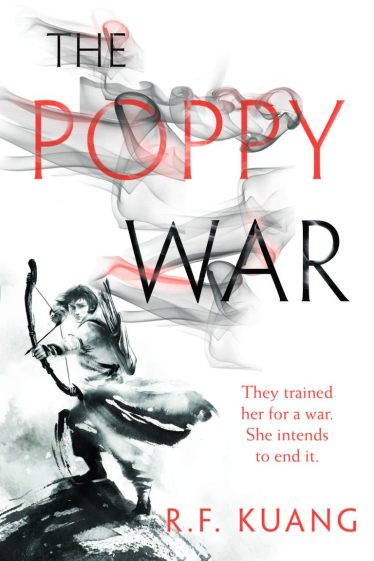The Poppy War is one of those books that I just couldn’t stop reading. Once I opened it, I couldn’t stop. Yet, when I finished reading, I wanted to read it all over again. Rin, a war orphan, lives in the boondocks of her country and is going to marry an opium merchant (if I remember correctly). To escape this fate, she attempts to prepare for the country’s examinations in order to become a soldier and serve her country. Along the way, she discovers that she’s a shaman, and that she has a greater stake in this war that she can imagine.
This is the least spoiler-y synopsis I can manage. Spoiler-filled review below, you know the drill.
Honestly, I loved this book because of its multiple references to Chinese culture and its worldbuilding. There are so many historical references to draw from. It is obviously loosely based on China’s opium addiction in the Qing dynasty, and certain characters, such as Rin’s teacher, Jiang Ziya, is a character from a very old Chinese epic, The Investiture of the Gods. Rin’s rival, Nezha, is also named after a Chinese god, and the 12 provinces are obviously named after the zodiac. Also, the examination system is closely based on the ancient Chinese imperial system. The author also mentioned that the atrocities that happened in the book mirror that of the Rape of Nanking, and all of these references were used well to create a believable universe.
What I also enjoyed the most was seeing Rin struggle and triumph to get into the Singardian academy, and how she powered through to become the top student in her cohort. The bullying and the brutality of this world served to highlight how the fittest survive, and that the class divide was almost impossible to overcome. The author did well getting us to root for Rin, and as she unlocks her new powers and discovers obscure knowledge on how to channel a god’s powers, we are let into this secret universe, too. I enjoyed how Rin managed to pick up martial arts even though her martial arts teacher obviously had it in for her, and how she managed to overcome all that.
In parts 2 and 3 of the book, war breaks out, and it’s messy. Rin’s rivals are ravaged by the war in many ways imaginable, and a character that appeared in the first third of the book, Altan Trengsin, the prodigy at the academy, is now her commander. Rin becomes part of the Cike, an elite squad with strange powers that no one in the empire respects, but desperately needs as this band of outsiders can channel gods through their bodies, and are probably the secret weapons that will help win the war. This is where the book gets less structured, and could have used more editing, but on the other hand, war itself is messy, so I supposed these parts were supposed to reflect the chaos of war.
Moreover, I did enjoy reading about the war tactics deployed and how we get more insight into the mysterious Altan Trengsin. In fact, Altan Trengsin shows Rin how she could be if she lets hate consume her, serving as a warning. Even though this warning is given to her through her friends and teacher, she doesn’t heed it and chooses unbridled power instead. I’m very interested to see how this pans out in the later books.
What annoyed me was also how some characters had Chinese names but some had more fantasy-sounding names. I wish the writer had gone the whole hog and simply gave everyone Chinese names. That would have made it so much more authentic, but as it is, it is clear that the writer is incredibly knowledgeable about Chinese history and did well in creating a compelling universe.
I can’t wait for the next book and I want to know what happens next. The author’s challenge would be to make full use of what she has set up to continue with this compelling story.
